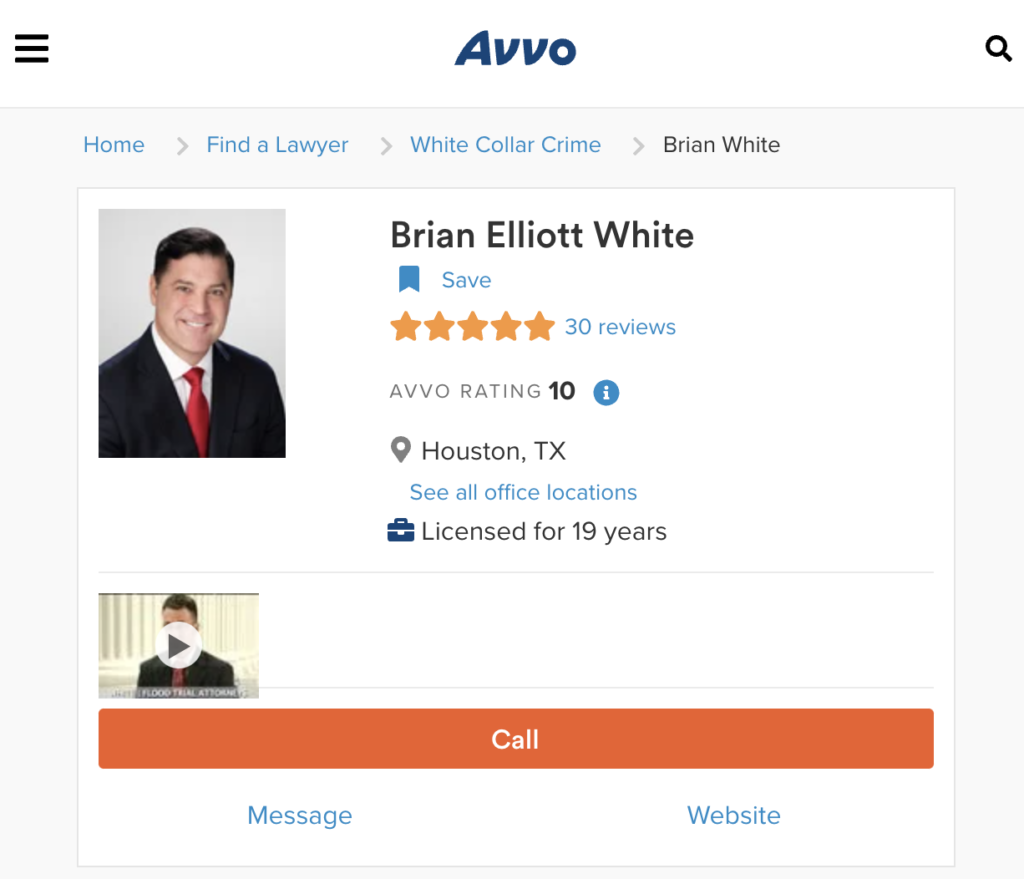7 Tips for Finding the Best Personal Injury Lawyer in Texas
After an accident in Texas, you’ll only have one opportunity to seek compensation for your financial costs, physical trauma, and emotional suffering. Ultimately, choosing a personal injury lawyer to represent you will be one of the most important decisions you make. In fact, your choice of attorney can make or break your case. It can impact how much money you win – or if your case is even a success, at all.
But how do you find the best personal injury lawyer to help you? It can be more difficult than it should be. Law firms advertise on TV, billboards, and the radio. They spend tons of money on marketing to get their law firm websites to rank high on Google search results. They might bombard you with information – but not necessarily the information you need to pick a lawyer.
So, here’s what you really need to know about finding the best personal injury lawyer in Texas.
Contents
First – Understand the Lawyer’s Role in Your Life After an Accident

Before you hire a lawyer, you need to understand what an attorney does in your case. Lawyers perform a few vital functions.
Here are some of the most important ones:
Provide Legal Advice and Counsel
As a legal adviser and counselor, your lawyer should provide you with clear explanations of the law. The lawyer should provide an objective evaluation of your case. This includes telling you about any problems in your case and the risk that you might lose.
A lawyer helps you to make decisions by presenting the pros and cons of each legal strategy. A good lawyer also accounts for non-legal matters, including financial and familial considerations, when providing advice and counsel.
Represent Your Interests
A lawyer speaks for you when negotiating with claims adjusters. The lawyer acts on your behalf and in your best interests. The lawyer must also satisfy their ethical duties by dealing fairly and honestly with opposing parties and the court.
Advocate for Your Legal Rights
The lawyer uses the knowledge and experience gained through their practice to formulate the best possible legal arguments to support your position. They seek to obtain the best possible outcome for your case within the bounds of the law and ethical rules.
Provide Support and Guidance During a Tough Time
Your lawyer should do more than handle the technical and legal aspects of your case. Your lawyer should be able to provide support, guidance, and a true sense of comfort to you as you navigate the challenges of your post-accident life.
Their job isn’t just to help you win a legal dispute – their job is to help you move forward and work toward rebuilding your life. An attorney who is genuinely empathetic and caring about your situation will work that much harder to get the best results for your case.
Strategies For Finding the Best Lawyer For Your Personal Injury Case
Finding the best lawyer means finding the right one for you and your case. Lawyers have different skills, experiences, and personalities. The best lawyer for one case might not provide the right fit for another case.
1. Use Online Reviews as Guidance

Online reviews can provide a lot of great information about attorneys and law firms. You can get a sense of how former clients felt about their experiences and identify potential issues that might not make that particular lawyer the best fit for you.
But, reviews should be considered with a grain of salt. They might not always provide a reliable assessment of a lawyer’s skills. Opposing parties can manipulate online reviews after losing a case. Dissatisfied clients are more likely to submit negative reviews than satisfied clients are to submit positive reviews. As a result, a lawyer’s online reviews might present a skewed view.
Instead of looking at online reviews, look at the lawyer’s ratings from legal directories like AVVO and Martindale-Hubbell. These publications use algorithms based on surveys of colleagues and clients, as well as objective records such as court verdicts and disciplinary histories.

These ratings can provide a more reliable summary of a lawyer’s background, skill, and ethics than online reviews.
Another great place to look for reviews is on the attorney’s Google My Business listing. To do this, just go to their map’s listing and from there you can see their reviews.
Also, look closely at how the attorney responds to any negative reviews. That says a lot about how much they value their clients’ feedback.
This is the maps listing from Brian White, a personal injury attorney in Houston, TX.
2. Look for Experience – Especially With Cases Like Yours

Experience matters. The more experience an attorney has, the better they’ll understand the laws and procedures related to your case. It’s not just overall experience that matters, either. Consider how much experience an attorney has handling cases like yours.
In Texas, different types of personal injury cases can be subject to different rules and laws. Some of these areas of law are quite complicated – like workers’ compensation or medical negligence. Having an attorney who not only has experience with these types of claims, but who specializes in them, can offer you a huge advantage.
They’ll already have tackled the learning curve, know the parties who are regularly involved in these types of disputes, and have developed strategies to help their clients win.
3. Research Disciplinary Histories

Before you meet with a lawyer, find out whether the State Bar of Texas has any record of disciplinary action for them. Lawyers must follow the Texas Disciplinary Rules of Professional Conduct in their practices. When they violate a rule, the state bar can sanction the lawyer with a censure, suspension, or disbarment.
Prior run-ins with the state bar are a red flag. Ethical violations can put your case at risk. You also need to know if the state bar has suspended or disbarred them. If the lawyer is currently under suspension or disbarred, they cannot practice law.
4. Schedule a Free Consultation – and Take Advantage of the Time to Learn About the Lawyer
Most injury lawyers offer free consultations. This isn’t just an opportunity for them to learn about and assess your case. It’s an opportunity for you to ask questions and learn about the attorney.
Ask them about their experience. Ask them if they have handled cases like yours. Ask them about their approach – and who at the firm would be handling your case if you hired them.
What does your gut tell you about the attorney? Would you feel comfortable confiding in them and being honest about every aspect of your case? Do you think your personalities would get along well?
Don’t underestimate these things. Trust your instincts.
5. Talk About Fees
Attorney fees can create friction between lawyers and clients. Avoid this issue by discussing fees during the free consultation.
Most personal injury lawyers in Texas work on a contingency fee basis. You only have to pay them if they win your case. Typically, their percentage will probably fall anywhere between 33% and 40% of your award. But, it’s really more involved than that.
Make sure you ask questions about how case-related expenses will be handled. Ask if the attorney’s fee be calculated before or after those are factored into the equation. Whether or not the attorney’s fee will be determined using the gross recovery or net award can have a sizable impact on how much money you’re ultimately awarded when your case is over.
You can also look for warning flags like vague answers to your questions about fees and costs.
6. Ask About the Merits of Your Case

At an initial consultation, most lawyers will give you a preliminary assessment of the strengths and weaknesses of your case. A lawyer might even provide an estimate of the compensation you could expect to receive for your injuries.
This conversation can help you to set your expectations for your case. It also gives you a chance to assess the lawyer’s logic and communication skills. You do not want a lawyer who cannot communicate clearly. If you cannot follow the lawyer’s explanation about your case, a claims adjuster or juror might also be unable to follow the lawyer’s logic.
7. Consider Past Results
Past results won’t guarantee future success. But, it’s important to consider an attorney’s ability to win compensation for their clients.
What kind of results can they show you? Do they seem to have a demonstrated ability to win? Does it appear that they are eager to settle or can they show that they’re willing to take cases the distance to trial, when necessary?
Results – above and beyond the amounts recovered – can tell you a lot about a lawyer.
Making the Decision to Hire an Attorney After an Accident in Texas
If you have the time, think about your options. After you find a lawyer you like, contact their law office to hire them. The lawyer will have a fee agreement that you will need to review and sign. You will also need to sign a HIPAA release so your doctors can provide medical records to the lawyer.
Once the lawyer has your written consent to represent you, they can get started on recovering fair compensation for your injuries.

Leave a Reply